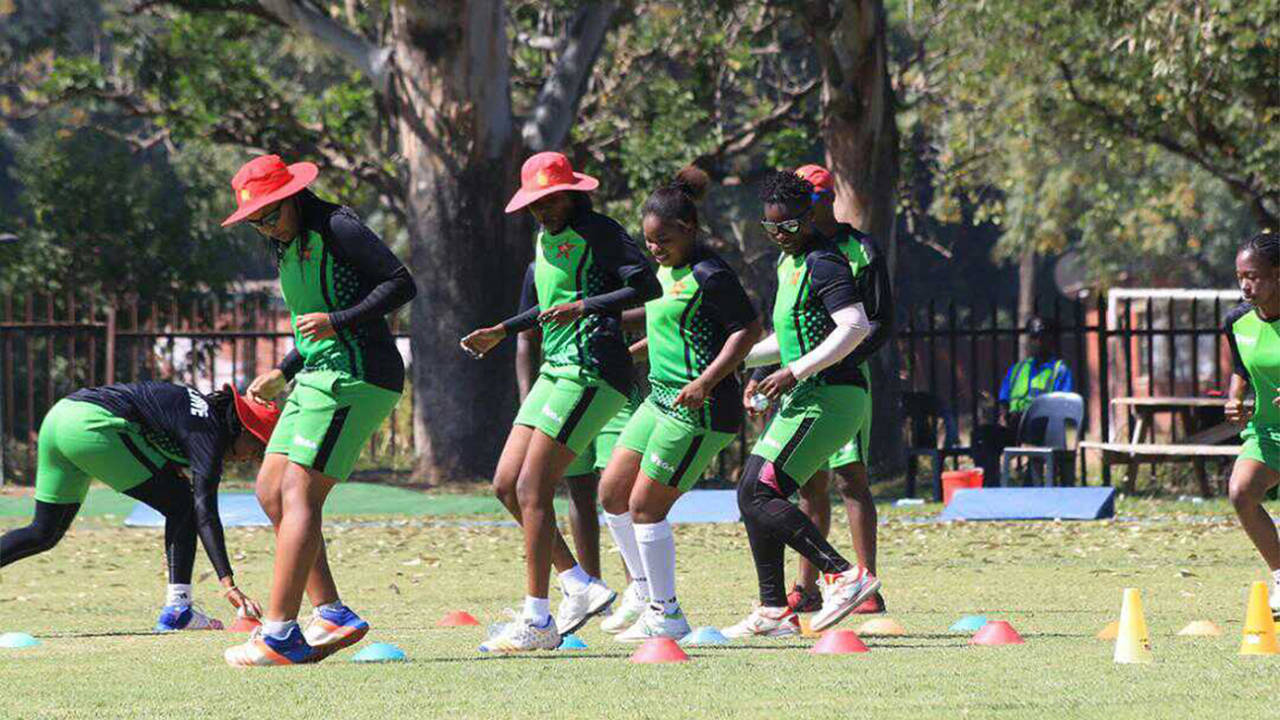Mary-Anne Musonda should have been packing her bags for a once in a lifetime trip to England on Wednesday. As Zimbabwe's captain, she was selected alongside three of her team-mates to be part of the Women's Global Development Squad, which will meet later this month to play a T20 against various Kia Super League sides. With her flight already booked and paid for, she would have flown out of Harare International Airport on Thursday.
But when the ICC suspended Zimbabwe's membership after their board meeting in London last week, Musonda, her team-mates and national coach Adam Chifo were
all barred from taking part in the Development Squad. Musonda, a professional cricket, isn't quite sure what to do. Zimbabwe's suspension has essentially put her out of a job.
"It was going to be good exposure," Musonda told ESPNcricinfo. "We don't get these opportunities a lot, so we were looking forward to that. But it's not going to happen for us. It's been a tough couple of weeks. It's a tough time for women in Zimbabwe. The players are finding it difficult to cope, because cricket is their life. It's all they've known. They've committed a lot of time and resources to play cricket."
The Zimbabwe women team were the first, and hardest, hit by Zimbabwe's suspension. Their tour of Ireland, meant to run alongside the men's trip, was
cancelled at the last minute. It is almost certain that they will not travel to Scotland for the T20 World Cup Qualifiers in August either.
"Cricket has stopped for us," Musonda said. "It stopped when we were supposed to go to Ireland and Netherlands last month. Immediately, we were the team that had to suffer the consequences of the SRC's (Sports and Recreation Commission's) meddling in ZC affairs. It's been devastating for us."
A precocious talent, Musonda was first selected for a Zimbabwe squad while aged just 16. She continued to play cricket for KwaZulu-Natal Inland in South Africa while studying south of the Limpopo, becoming a national team regular upon her return.
In December last year, she was named captain, leading the team successfully in the Africa Region Qualifiers in May, and moving on to be selected into the third intake into the Development Squad. Two Zimbabweans - Modester Mupachikwa and Chipo Tiripano - were part of the last Development squad, which travelled to Australia in November last year. But as a result of Zimbabwe's suspension, those two may now be the last ever to take part in the programme. Cricket in Zimbabwe, and particularly women's cricket, has a somewhat tenuous existence - widely supported by a knowledgeable public, but dependent on ICC funding for its development.
Now that that funding has been withdrawn, the viability of the sport hangs by a thread. If Zimbabwe don't go to Scotland, Musonda warns that the women's game in this country might not survive.
"If we fail to go to Scotland, it would be a disaster for women's cricket in Zimbabwe. It might actually mean that women's cricket in Zimbabwe will be over. Players might actually withdraw from playing. Players will doubt that they can actually base their lives and careers on cricket; because if they feel that such an opportunity can be taken away from them, then what is there to stay for? What guarantee do they have that something like this will not happen in the future?"
The players have now gone two months without being paid, and face at least three more months in the wilderness before the ICC meet again in October, which is when they have said they will reconsider any grounds to end the suspension. But that could well be too late, and in a country already crippled by an economic meltdown, families and livelihoods are at risk.
"I can't put a figure to it and say this is the actual number of people who have been affected," Musonda said. "Zimbabwe Cricket employs thousands of people for a game to be played. It's employment creation for people, from the curators to the groundsmen, to the people who cook in the kitchen, the chefs, people who prepare food for the players, the administration, the actual players. And as an extension, people who are benefiting from their fellow relatives and families being employed by Zimbabwe Cricket. Our families have been affected as well.
"So I cannot put a number to it, but I can say a lot of people have been affected by what is happening because there are no salaries and people don't know what to do with their lives anymore. There's no more employment for a lot of people. This is the ripple effect of what is happening."
While Zimbabwe's cricketers have borne the brunt of the suspension, the solution, Musonda believes, lies with the SRC.
"The solution that's there now is for the SRC to reinstate the board," she said. "That way, the ICC will be able to consider us again and continue to fund our fixtures, and sanction more tournaments. This is one solution that is within our reach.
"Granted, there might be issues between ZC and the SRC, but it has gone to the extremes that I don't think it should have. The SRC might have solved this situation better, might have looked at other strategies of how to go about things to get the desired outcome without taking this route, because now it has affected everyone else.
"It has affected the players, people who know nothing about the actual details of what actually transpired for this to start. They should have sat down and solved things in a different way, without us having to be implicated in the consequences of their actions."
For Musonda and her team, those consequences are the crushing of their dreams, right when they were on the brink of making them a reality.
Liam Brickhill is ESPNcricinfo's South Africa correspondent
